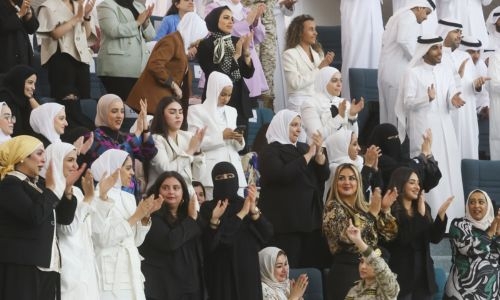Troubled Kuwait swears in fifth government in a year
AFP | Kuwait City
The Daily Tribune – www.newsofbahrain.com
Kuwait's fifth government in less than one year took the oath of office Monday after elections returned an opposition-controlled parliament, setting the stage for further political turmoil in the oil-rich emirate.
Four royals are among the 15-strong cabinet, which is appointed by the ruling Al-Sabah family and has a history of clashes with the Gulf's only elected national assembly with powers to hold government to account.
Kuwait is one of the world's biggest oil producers but decades of political instability, including seven general election cycles in just over a decade, have spooked investors and stymied economic reforms.
Prime Minister Sheikh Ahmad Nawaf al-Ahmad Al-Sabah, the son of Kuwait's 85-year-old emir, is now presiding over his fifth cabinet since he was appointed last August.
"Positive and constructive cooperation with parliament and all members of society will be at the heart of the government's work," he told the swearing-in ceremony.
Saad Al-Barrak comes in as oil minister, and Public Works Minister Amani Bougammaz, the only woman in the cabinet, is one of nine people to retain their positions.
Sheikh Ahmad al-Fahad Al-Sabah, the sports powerbroker and former International Olympic Committee member who in 2021 was convicted of forgery in a Swiss court, returns as defence minister and deputy prime minister.
This month's legislative elections were held after the constitutional court had annulled the results of the previous polls held in September, also won by the opposition.
In the new parliament, which is due to meet for the first time on Tuesday, opposition figures including Islamists, independents and the assembly's lone woman hold 29 of the 50 seats.
Kuwait, which borders Saudi Arabia and Iraq, is home to seven percent of the world's crude reserves. It has little debt and one of the strongest sovereign wealth funds worldwide.
However, it suffers from constant stand-offs between elected lawmakers and cabinets installed by the ruling family, which maintains a strong grip over political life despite a parliamentary system in place since 1962.
Related Posts

